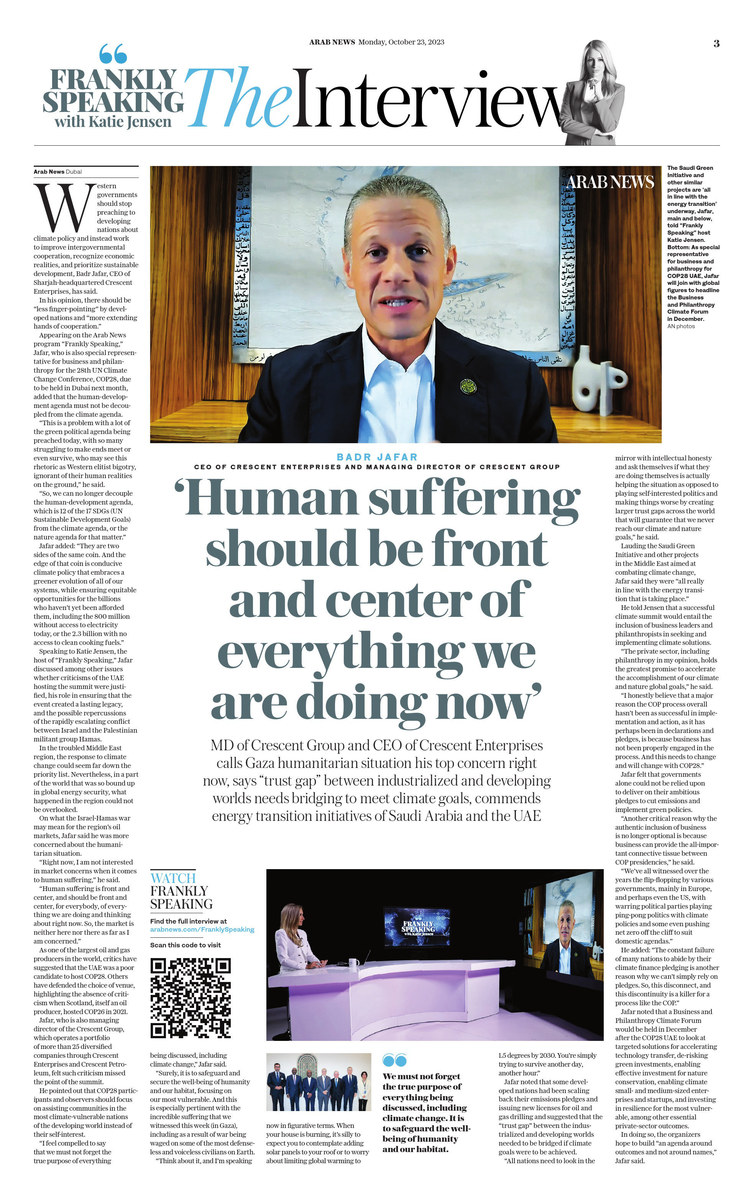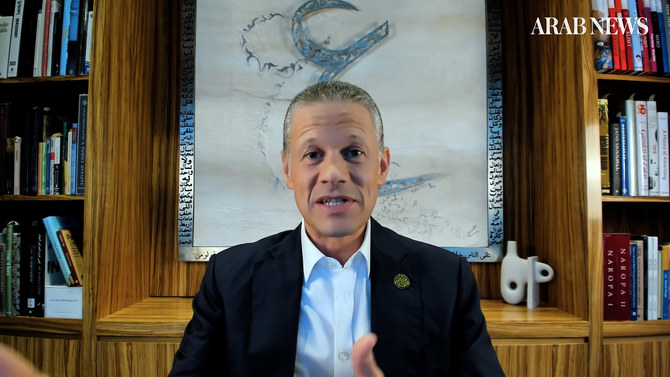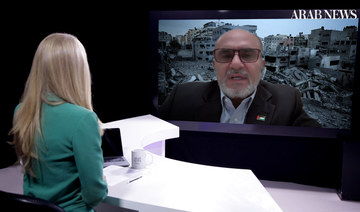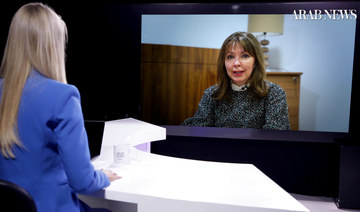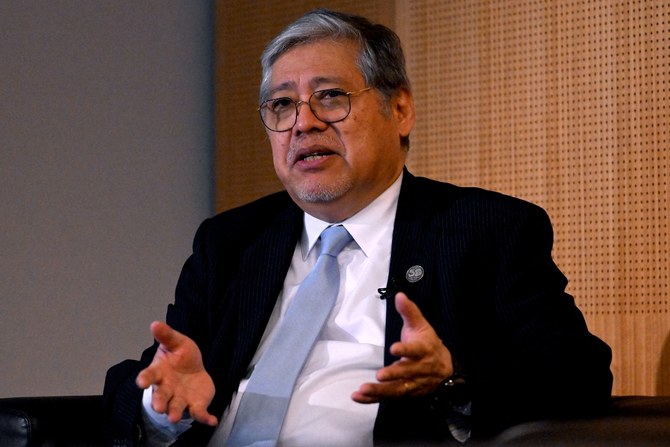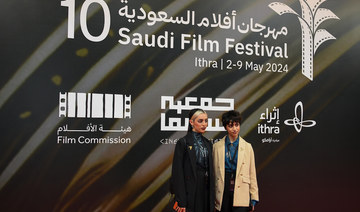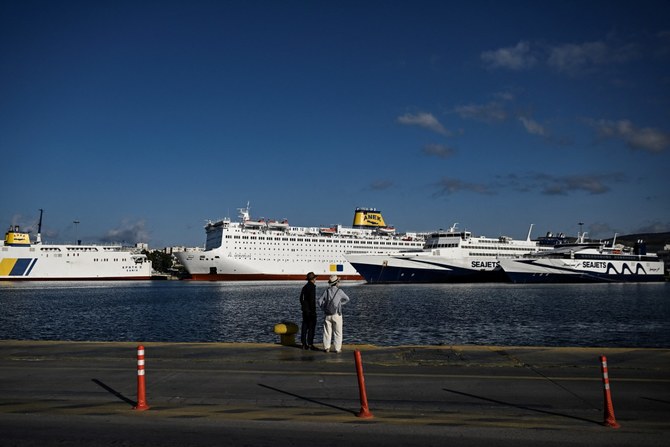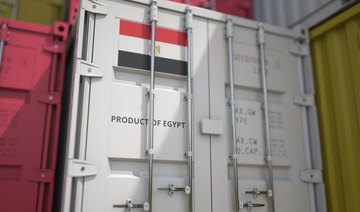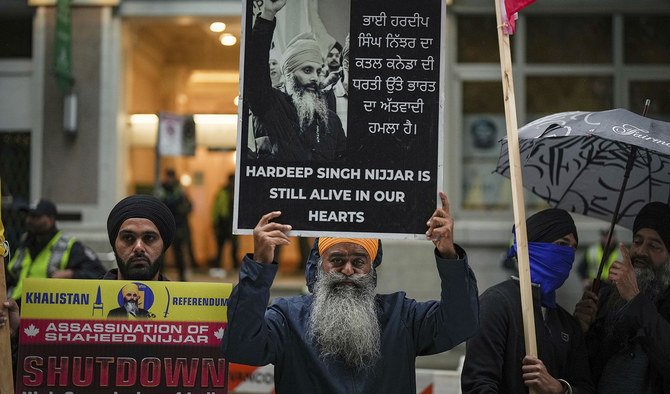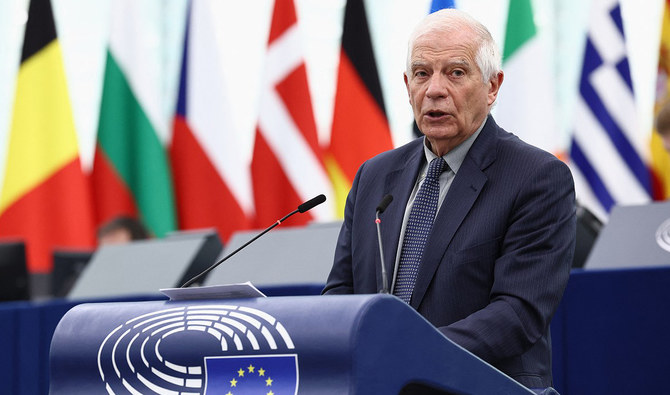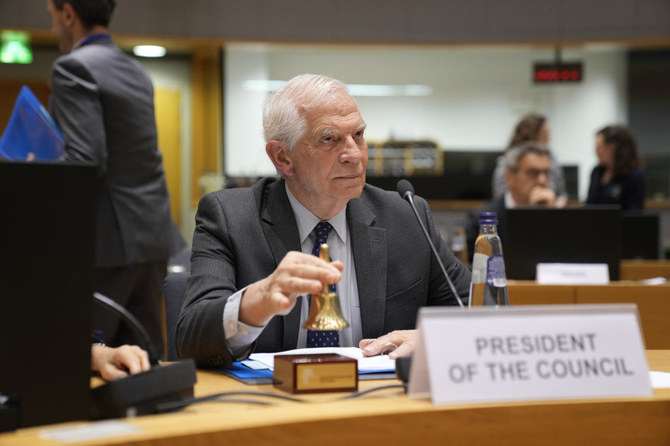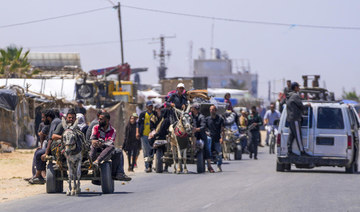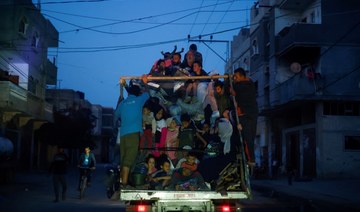DUBAI: Western governments should stop preaching to developing nations about climate policy and instead work to improve inter-governmental cooperation, recognize economic realities, and prioritize sustainable development, Badr Jafar, CEO of Sharjah-headquartered Crescent Enterprises, has said.
In his opinion, there should be “less finger-pointing” by developed nations and “more extending hands of cooperation.”
Appearing on the Arab News program “Frankly Speaking,” Jafar, who is also special representative for business and philanthropy for the 28th UN Climate Change Conference, COP28, due to be held in Dubai next month, added that the human-development agenda must not be decoupled from the climate agenda.
“This is a problem with a lot of the green political agenda being preached today, with so many struggling to make ends meet or even survive, who may see this rhetoric as Western elitist bigotry, ignorant of their human realities on the ground,” he said.
“So, we can no longer decouple the human-development agenda, which is 12 of the 17 SDGs (UN Sustainable Development Goals) from the climate agenda, or the nature agenda for that matter.”
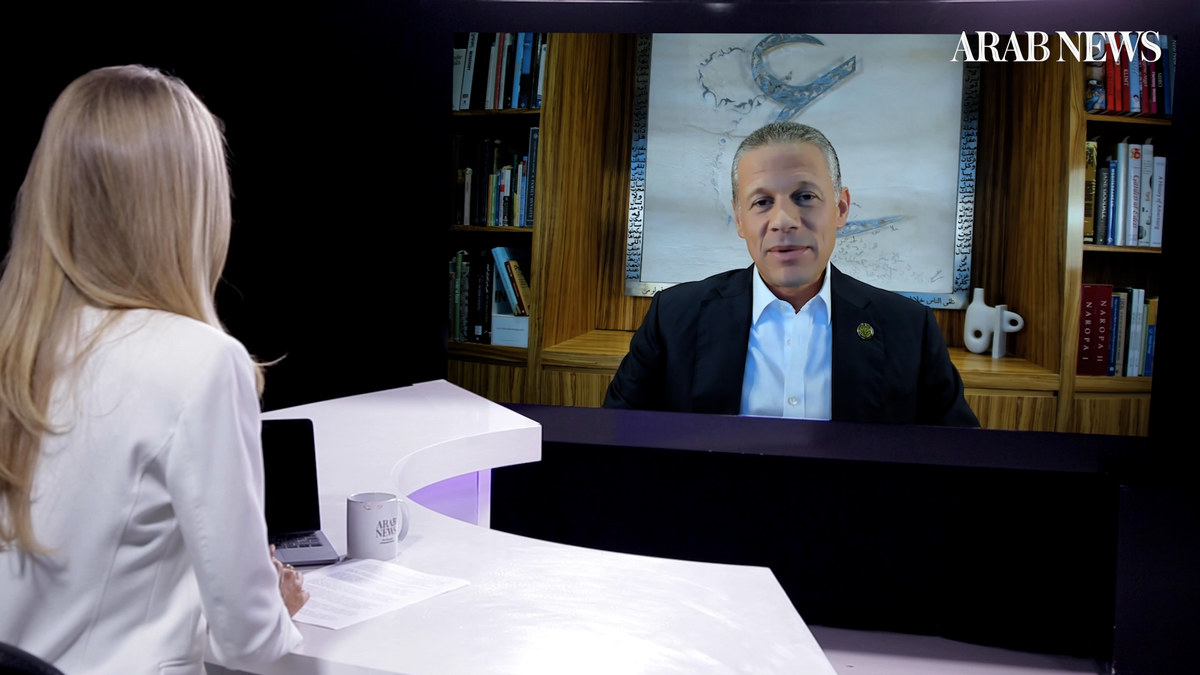
Badr Jafar, CEO of Crescent Enterprises, managing director of the Crescent Group, COP28 Special Representative for Business & Philanthropy, speaks to Katie Jensen, host of Frankly Speaking. (AN photo)
Jafar added: “They are two sides of the same coin. And the edge of that coin is conducive climate policy that embraces a greener evolution of all of our systems, while ensuring equitable opportunities for the billions who haven’t yet been afforded them, including the 800 million without access to electricity today, or the 2.3 billion with no access to clean cooking fuels.”
Speaking to Katie Jensen, the host of “Frankly Speaking,” Jafar discussed among other issues whether criticisms of the UAE hosting the summit were justified, his role in ensuring that the event created a lasting legacy, and the possible repercussions of the rapidly escalating conflict between Israel and the Palestinian militant group Hamas.
In the troubled Middle East region, the response to climate change could seem far down the priority list. Nevertheless, in a part of the world that was so bound up in global energy security, what happened in the region could not be overlooked.
On what the Israel-Hamas war may mean for the region’s oil markets, Jafar said he was more concerned about the humanitarian situation.
“Right now, I am not interested in market concerns when it comes to human suffering,” he said.
“Human suffering is front and center, and should be front and center, for everybody, of everything we are doing and thinking about right now. So, the market is neither here nor there as far as I am concerned.”
As one of the largest oil and gas producers in the world, critics have suggested that the UAE was a poor candidate to host COP28. Others have defended the choice of venue, highlighting the absence of criticism when Scotland, itself an oil producer, hosted COP26 in 2021.
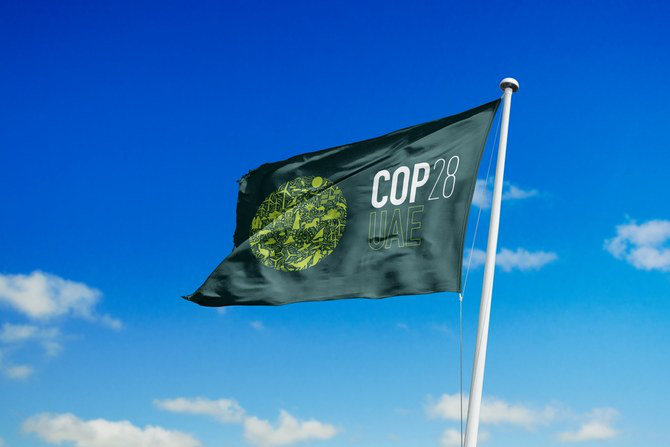
The COP28 summit will unfold from Nov. 30 to Dec. 12 at Expo City, Dubai, marking a significant gathering to steer the world toward a greener future. (Shutterstock)
Jafar, who is also managing director of the Crescent Group, which operates a portfolio of more than 25 diversified companies through Crescent Enterprises and Crescent Petroleum, felt such criticism missed the point of the summit.
He pointed out that COP28 participants and observers should focus on assisting communities in the most climate-vulnerable nations of the developing world instead of their self-interest.
“I feel compelled to say that we must not forget the true purpose of everything being discussed, including climate change,” Jafar said.
“Surely, it is to safeguard and secure the well-being of humanity and our habitat, focusing on our most vulnerable. And this is especially pertinent with the incredible suffering that we witnessed this week (in Gaza), including as a result of war being waged on some of the most defenseless and voiceless civilians on Earth.
“Think about it, and I’m speaking now in figurative terms. When your house is burning, it’s silly to expect you to contemplate adding solar panels to your roof or to worry about limiting global warming to 1.5 degrees by 2030. You’re simply trying to survive another day, another hour.”
Jafar noted that some developed nations had been scaling back their emissions pledges and issuing new licenses for oil and gas drilling and suggested that the “trust gap” between the industrialized and developing worlds needed to be bridged if climate goals were to be achieved.
“All nations need to look in the mirror with intellectual honesty and ask themselves if what they are doing themselves is actually helping the situation as opposed to playing self-interested politics and making things worse by creating larger trust gaps across the world that will guarantee that we never reach our climate and nature goals,” he said.

Dr. Sultan Al-Jaber, COP28 president; Razan Al-Mubarak; UN Climate Change High-Level Champion; and Badr Jafar engaged with global leaders Williams Ruto, Bill Gates and Mike Bloomberg at an event focused on health and climate to discuss the COP28 Action Agenda, designed to deliver an immediate response to the GST. (Supplied)
Defending the choice of Dubai as the COP28 venue, Jafar said the UAE should be judged based on its climate policies and investments in clean renewable sources of energy.
“This is what the UAE and its stewardship of COP28 is all about. In just two generations, the UAE rapidly diversified its economy with over 70 percent of GDP (gross domestic product) today generated outside petroleum,” he said.
Jafar highlighted the UAE’s Green Agenda, launched in 2015, its “net zero by 2050” strategy, and its commitment to invest more than $160 billion in clean energy in the coming years, adding that Abu Dhabi’s Masdar was already the largest single renewable energy investor in the world.
He also pointed out the UAE’s efforts to protect natural carbon sinks by reversing deforestation and launching initiatives such as the Mangrove Breakthrough to restore 15 million hectares of mangrove worldwide.
Lauding the Saudi Green Initiative and other projects in the Middle East aimed at combating climate change, Jafar said they were “all really in line with the energy transition that is taking place.”
He told Jensen that a successful climate summit would entail the inclusion of business leaders and philanthropists in seeking and implementing climate solutions.
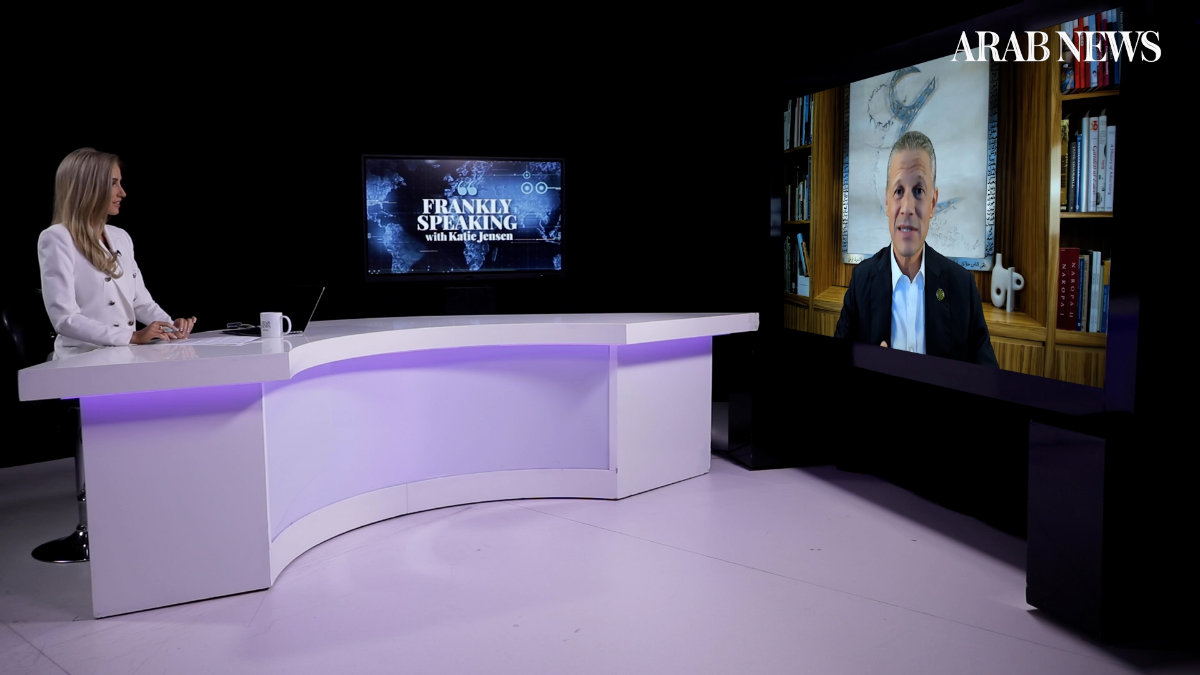
Badr Jafar, COP28 Special Representative for Business & Philanthropy, speaks to Frankly Speaking host Katie Jensen. (AN photo)
“The private sector, including philanthropy in my opinion, holds the greatest promise to accelerate the accomplishment of our climate and nature global goals,” he said.
“I honestly believe that a major reason the COP process overall hasn’t been as successful in implementation and action, as it has perhaps been in declarations and pledges, is because business has not been properly engaged in the process. And this needs to change and will change with COP28.”
Jafar felt that governments alone could not be relied upon to deliver on their ambitious pledges to cut emissions and implement green policies.
“Another critical reason why the authentic inclusion of business is no longer optional is because business can provide the all-important connective tissue between COP presidencies,” he said.
“We’ve all witnessed over the years the flip-flopping by various governments, mainly in Europe, and perhaps even the US, with warring political parties playing ping-pong politics with climate policies and some even pushing net zero off the cliff to suit domestic agendas.”
He added: “The constant failure of many nations to abide by their climate finance pledging is another reason why we can’t simply rely on pledges. So, this disconnect, and this discontinuity is a killer for a process like the COP.”
Jafar noted that a Business and Philanthropy Climate Forum would be held in December after the COP28 UAE to look at targeted solutions for accelerating technology transfer, de-risking green investments, enabling effective investment for nature conservation, enabling climate small- and medium-sized enterprises and startups, and investing in resilience for the most vulnerable, among other essential private-sector outcomes.
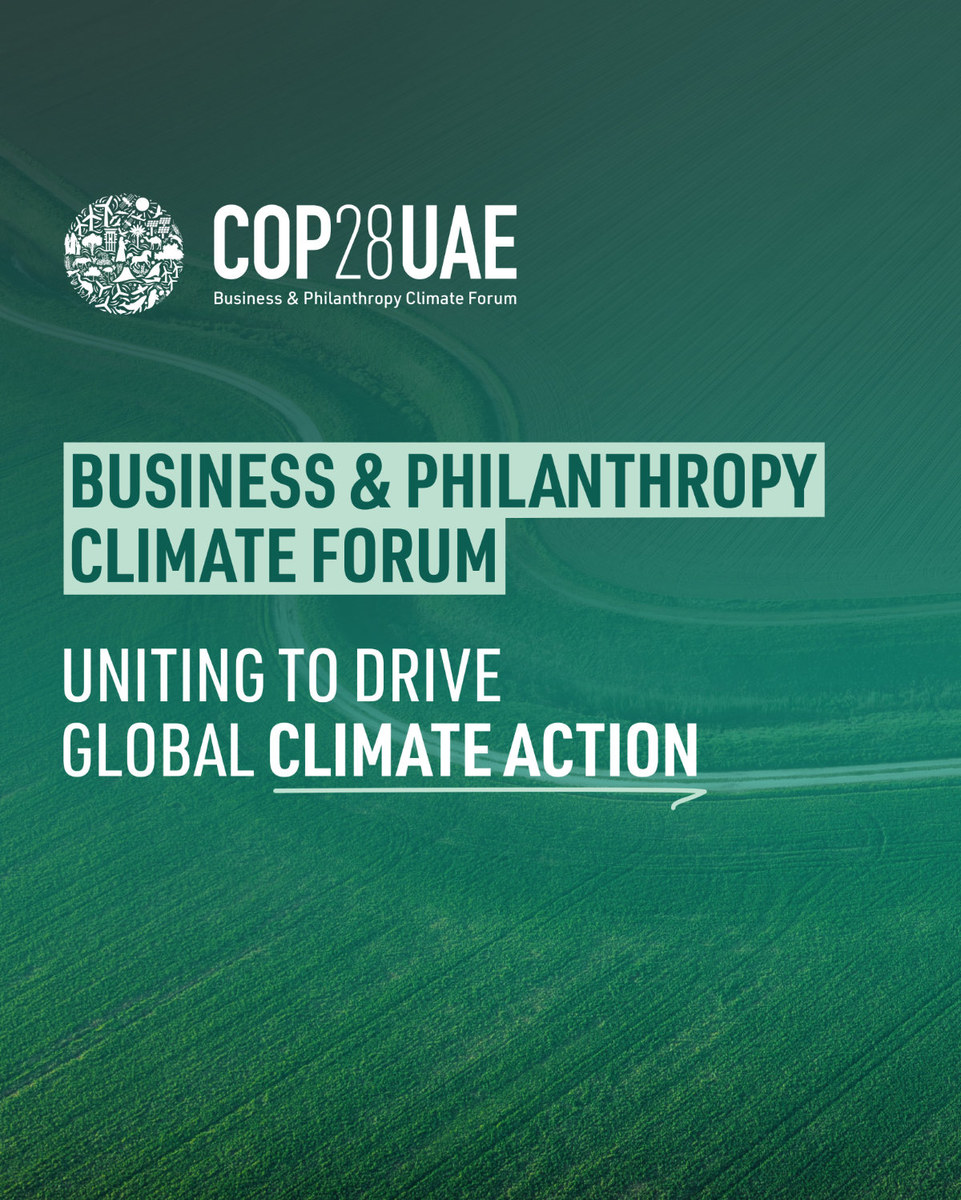
In doing so, the organizers hope to build “an agenda around outcomes and not around names,” Jafar said.
“That’s exactly what we’re doing with the forum, and I believe at COP28 more broadly. That’s really been the focus over the last couple of months, to make sure that the agenda is not just relevant to the COP28 and primarily, of course, relevant to the COP28 action agenda or the president’s action agenda, but also making sure that it’s relevant to the communities that this whole agenda and the outcomes need to serve.”
Speaking to Arab News at the World Economic Forum in Davos earlier this year, Jafar said the world was not dealing with an energy crisis, but rather a management crisis, pointing to the West’s failure to lead nations toward realistic solutions for climate change.
On “Frankly Speaking,” he again highlighted what he considered as a failure to embrace an economic reality that had resulted in greater division.
“Most discourse in the West’s energy policy circles today, or I should say political arena, seem to be obsessed with a starting point — a world dependent on fossil fuels — and an endpoint, a net-zero world to replace the old with the new, with a fantasy flick of the switch and dividing the problem into zero-sum camps,” Jafar said.
“When we think about problems in this reductionist way, we fall victim to our gap instincts: Us and them, the West and the rest.
“We create warring groups with an imaginary gap between them that creates an impossible choice, especially for many emerging (economies) who feel bullied into choosing between climate goals or growth; and such gaps instincts have moved the world further away from climate goals.”
